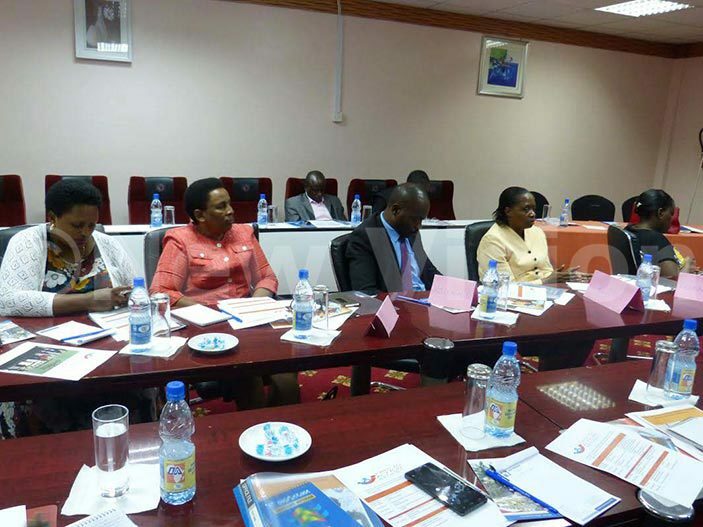Religious leaders task government to recruit more health workers
Sep 05, 2016
The religious leaders, who were meeting the parliamentary committee on health recently at Hotel Africana in Kampala, noted that people in rural areas have poor health services owing to lack of health workers, infrastructure and equipment.

Religious leaders under Faith Action Network have tasked the Government to recruit more health workers in hard-to-reach areas to improve service delivery.
The religious leaders, who were meeting the parliamentary committee on health recently at Hotel Africana in Kampala, noted that people in rural areas have poor health services owing to lack of health workers, infrastructure and equipment.
Rev. Dr Stephen Kaziimba Mugalu, the bishop of Mityana Diocese said many hospitals and health centres in rural areas lack doctors, midwives and nurses.
"We decided to meet the parliamentary committee on health because these are the policymakers such that they can help air out our voices to the responsible persons," Mugalu explained.
He also explained that as religious leaders they are to engage their masses into sexual reproductive health issues such that people become responsible.
Mugalu added that God wants people to have life in abundance, which means good health, dedication, having enough food for the family and this can only happen when people have planned families.

"However when people are many in numbers they fail to plan, they will be struggling with poverty and cannot afford food and education. As religious leaders we decided to teach people to have children that they can plan for," he noted.
Dr Michael Bukenya, the Bukuya MP in Mubende district and chairperson of the parliamentary committee on health said faith-based organisations are crucial contributors on health and other services because they reach many people.
"Often the beneficiaries of their services are marginalised populations in areas with limited accessibility. So we are going to make sure that we work out on their issues such that they are worked on. As a committee on health, we are trying to see that health is also given because it is the most important component countrywide. This will help work on issues of health workers, infrastructure and equipment," Bukenya noted.
According to the assistant commissioner reproductive health ministry, Dr Blandina Nakiganda, achieving suitable development goals requires innovative approaches on service delivery and establishment of strategic partnership.
She explained that one key strategy is to increase access to quality sexual reproductive health services which can be achieved if only there is partnership and close collaboration with faith-based organisations and religious leaders.
"Religious leaders are well-positioned to provide services and education that leads to behavioural change. This includes uptake of key life-saving interventions under reproductive, maternal, new-born and child health by promoting and directly mobilising the community to seek these services and advocating with policy and decision makers to allocate adequate resources to ensure availability of quality sexual reproductive health services," she noted.
According to the World Health Organisation, faith-based bodies provide 30-70% of health services in developing countries. In Uganda faith-based organisations provide 60% of health services within their health facilities.
According to Jackie Katana Beinomugisha, the International Advocacy Officer Faith Action Network, the Government should ensure provision of life saving commodities and essential drugs including ARVs through implementation of a streamlined supply chain management system to avoid stock outs.
"The Government should also ensure implementation of existing laws against harmful cultural practices such as female genital mutilation and cult practices that prevent women from seeking sexual reproductive health services. Development partners and CSOs should involve religious leaders and cultural leaders as community gate keeper's right from policy, programming and implementation of sexual reproductive health services," she noted.
Katana added that the Government should expedite passing of the proposed National Health Insurance Bill which has been shelved since 2007 with a clear clause on provision of Family Planning and Sexual Reproductive Health.
